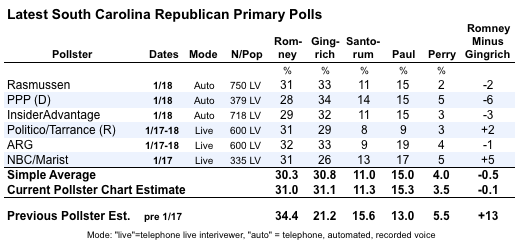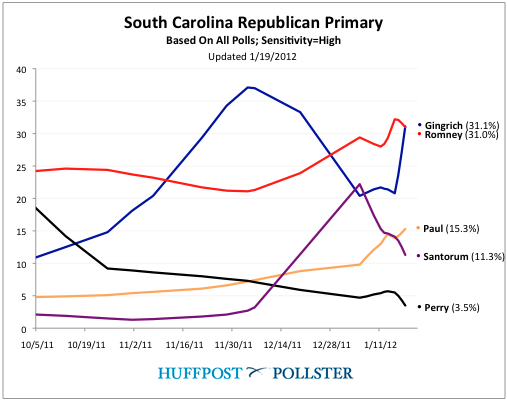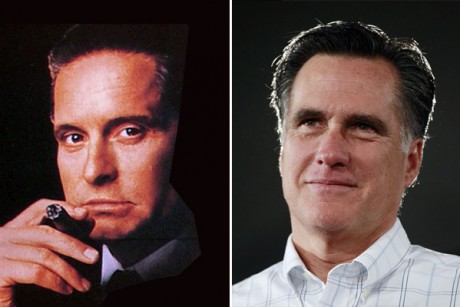When the polls close shortly in South Carolina at 7 p.m. eastern time, and the race is called for Hillary Clinton, Bernie Sanders won’t be around to offer her congratulations. Instead, he’s likely to be in the air, flying from Texas to Minnesota in preparation for Super Tuesday. Sanders’ surrogates, meanwhile, have been downplaying expectations in South Carolina for some time now, as the aggregate polls show him trailing her by some 20%. In my limited time crossing the state last week, I saw very little on-air presence for Sanders, although that might have reflected the timing more than a week before the Democratic primary. In my admittedly non-scientific samples of residents in the Myrtle Beach area, there didn’t seem to be that much buzz for the Vermont Senator and he had very disappointing crowds even at colleges where he normally packs an audience. At this point, Sanders is hoping to keep the margin in single digits, thus claiming a moral victory.
None of this is surprising, of course. For months we have been talking about Sanders’ inability to draw support from African-Americans. In 2008 they comprised 55% of the voters in the S.C. Democratic primary. Early exit polls, which of course must be adjusted in light of final turnout numbers, indicate that the proportion of African-American voters might be even higher today. Last week in Nevada entrance polls suggest Clinton won more than 70% of the African-American caucus goers. I see no reason why Sanders will do any better among this group today. The early exit polls have more bad news for Sanders, with only 19% supporting a change to more liberal policies, while 70% advocate a continuation of President Obama’s policies. Of course, Clinton has all but wrapped herself in the mantle of Obama’s presidency, much to Sanders’ growing frustration. (Again, these numbers are likely to be adjusted somewhat after the polls close.)
But Bernie’s problems don’t end in South Carolina. On March 1, Super Tuesday, Democrats will hold 12 nominating contests that collectively will award more than 1,000 pledged delegates. Many of those states have substantial African-American populations. In 2004, African-Americans were 47% of the Democratic primary vote in Georgia, 33% in Virginia, 23% in Tennessee and 21% in Texas. In 2008, the numbers for those states were 51%, 30%, 29% and 19%, respectively. If you throw in Alabama, which had 51% African-American turnout in the 2008 Democratic primary, and Arkansas at 16% (I don’t have exit poll data for those states in 2004), it becomes clear that Sanders’ faces an uphill climb to win votes next Tuesday among some voters. Collectively, these states award almost 600 delegates alone. Sanders will have to try to make up for that with strong showings in the Minnesota and Colorado caucuses, and in more liberal states like Massachusetts and, of course, Vermont. He will also try to over-perform expectations in Oklahoma. Collectively, however, these states only award a bit less than 300 delegates. Based on current polling, it would not be a surprise if Bernie only wins in his home state next Tuesday. In short, this could very well be the worst day he will have in this campaign – even worse than today. (That assumes that the current South Carolina polling is accurate! We should know in 10 minutes or so.)
The reality, then, is that Bernie is likely to come out of Super Tuesday trailing substantially in the delegate count – and this doesn’t include Clinton’s significant super delegate advantage. It’s not immediately clear how he can make that deficit up. And if he trails in the pledged delegates, there’s really very little incentive for super delegates to break his way, as I suggested in this previous post
Today is shaping up to be a very very bad day for Bernie Sanders. But next Tuesday might be even worse.



